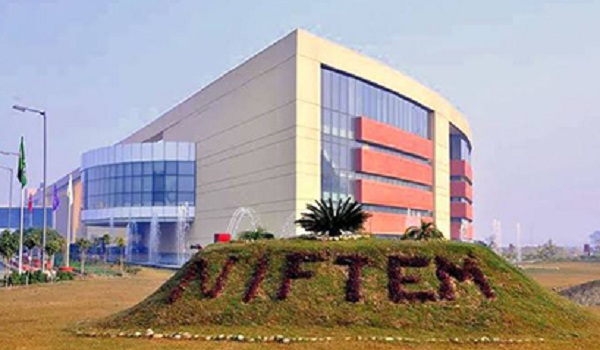The National Institute of Food Technology Entrepreneurship and Management (NIFTEM-K) has introduced groundbreaking technologies in 2024 to boost innovation and sustainability in India’s food processing sector, as highlighted in a year-end review by the Ministry of Food Processing.
Key innovations introduced by NIFTEM-K include:
· SARTHI Technology: Integration of advanced digital technologies with sensors.
· Hybrid Drying and Biodegradable Film: Development of 100% biodegradable film without plasticizers.
· Rapid Detection Kits: Nanosensor-based kits for detecting pesticides in tea and harmful compounds like acrylamides and aflatoxins.
At World Food India (WFI) 2024, NIFTEM-K showcased innovations including ready-to-cook millet-based products, fortified yoghurts, functional foods, vitamin D-enriched snacks, biochar from corn cobs, and advanced food processing equipment like the Boondi-making machine and 3D printing models.
In academics, NIFTEM-K achieved a milestone with the admission of 184 B.Tech. students from 22 states, reflecting the increasing interest in food science and technology among the youth.
The institute’s Village Adoption Programme (VAP)continued its success, impacting 21 villages across nine states. Over 360 students and 50 faculty members participated, driving entrepreneurship, technology transfer, and sustainable community development.
NIFTEM-K also signed MoUs with 11 leading companies, including Hindustan Unilever, Nestle R&D Centre, TetraPak, and Marico, along with partnerships with five academic institutions like IIT Bombay and AIIA, focusing on research collaborations and student exchange programs.
Five innovative technologies were successfully transferred to food companies and startups during WFI-2024, showcasing the practical applications of NIFTEM-K’s research initiatives.
The SUFALAM 24 startup forum fostered collaboration between academia, startups, and industry leaders, while grants under the NSIP 4 programme, supported by HDFC Bank Ltd., provided resources and mentorship to eight promising startups.
On the environmental front, NIFTEM-K hosted the National Conference on Efficient Food Processing for Environmental & Climate-Change Trends (EFFECT), focusing on climate-smart food processing, renewable energy use, and waste valorisation.
Internationally, NIFTEM-K strengthened its global presence through an MoU with the University of Melbourne, advancing research and student exchange initiatives. The institute also hosted delegations from Chile, Japan, and Australia, fostering global academic collaborations.
With these advancements, NIFTEM-K continues to play a pivotal role in driving innovation, research, and sustainable practices in India’s food processing sector.


